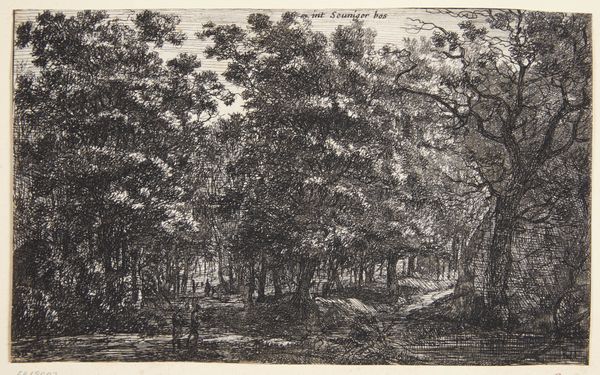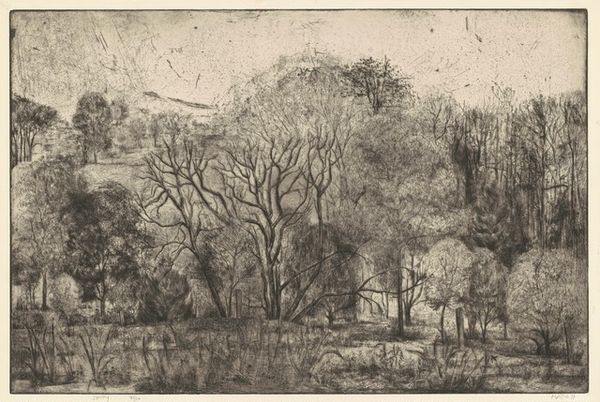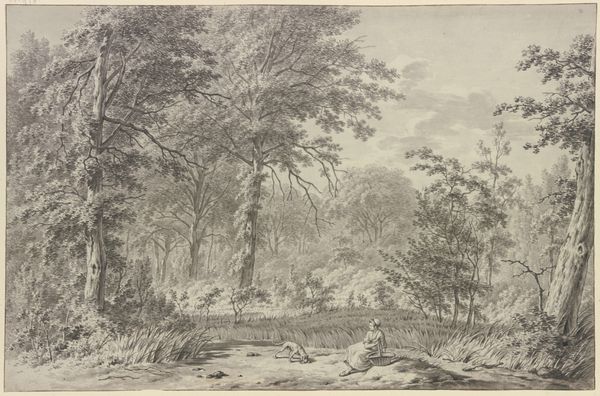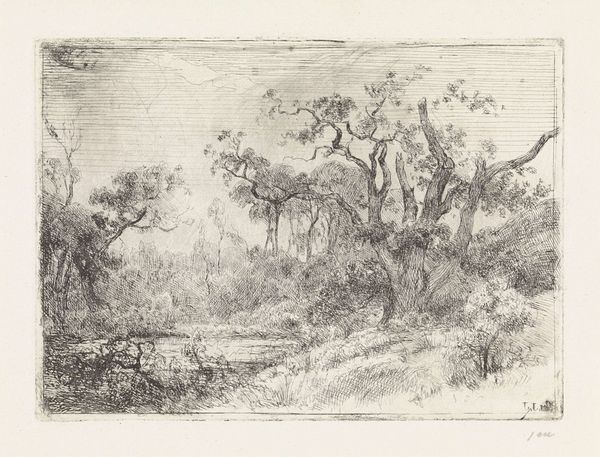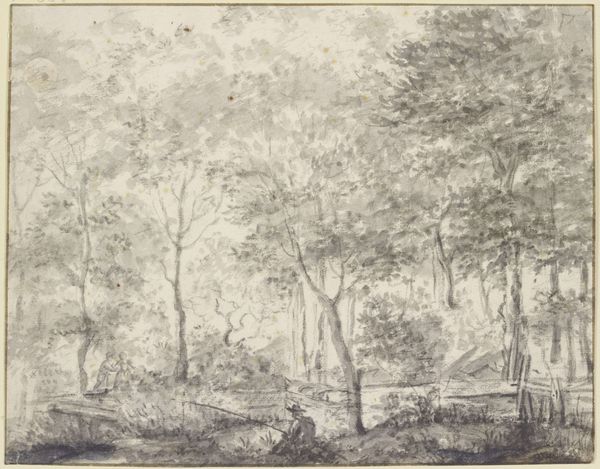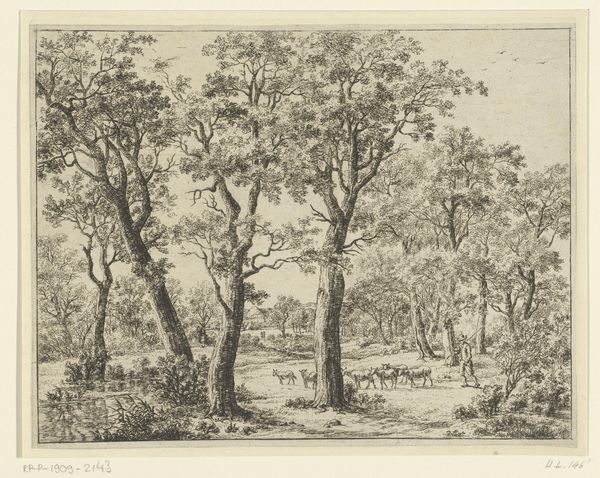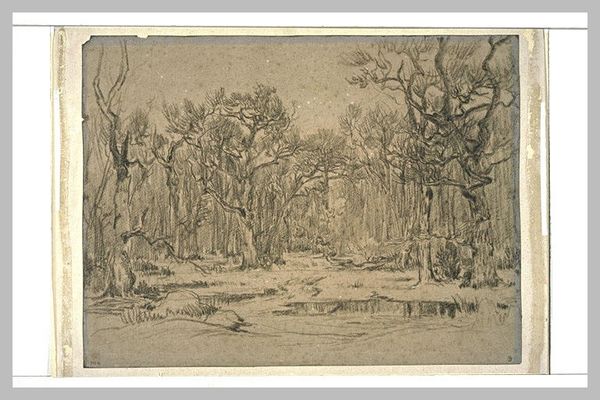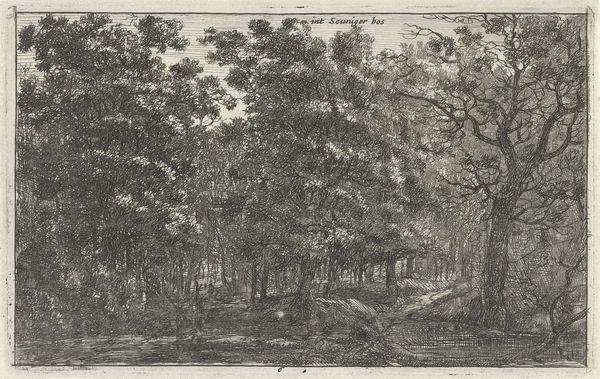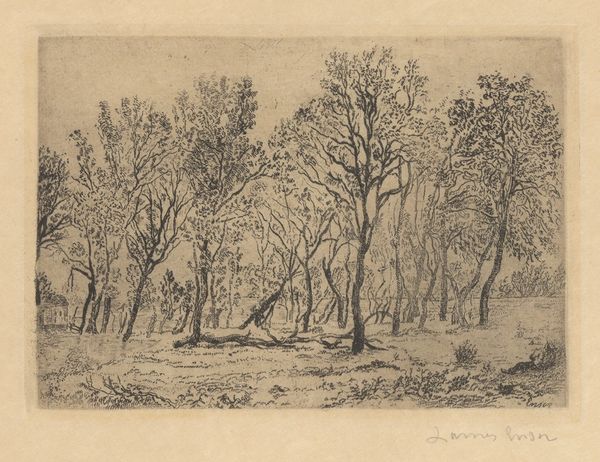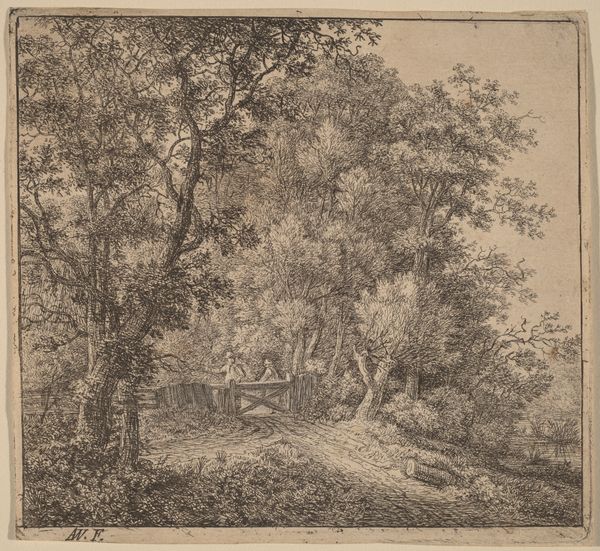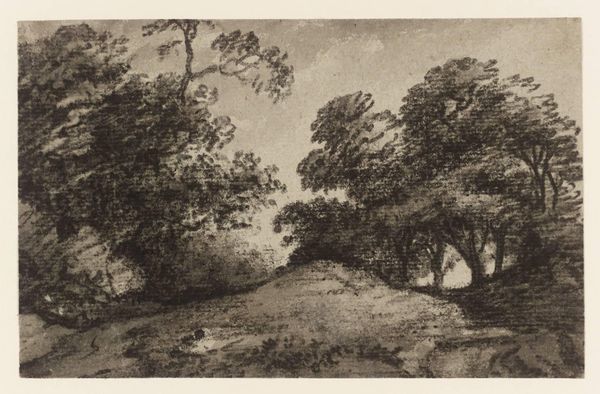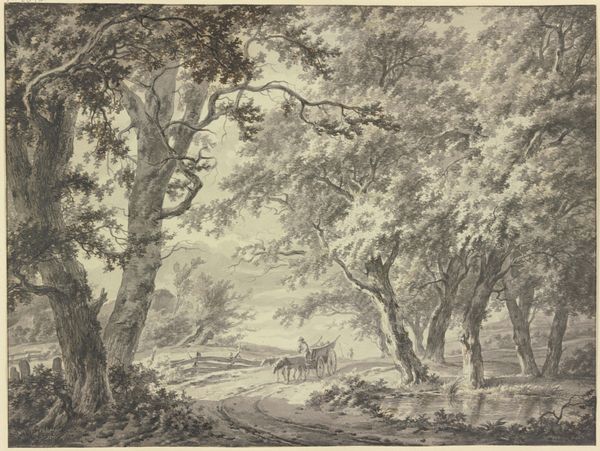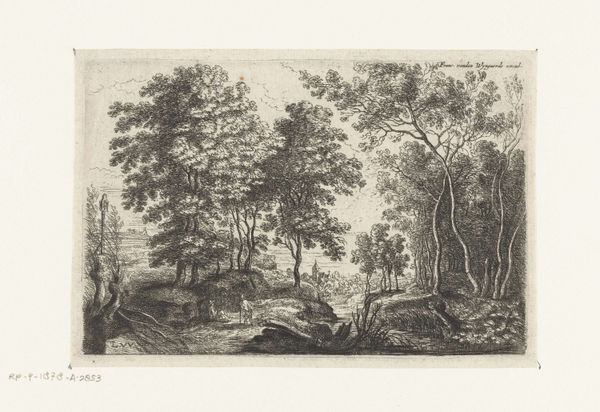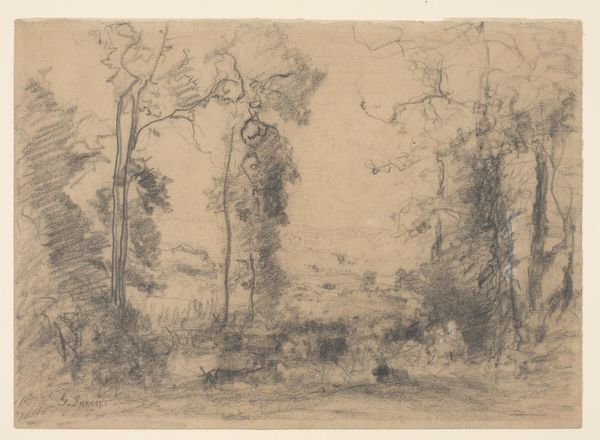
drawing, mixed-media, paper, ink, pencil
#
drawing
#
mixed-media
#
pencil sketch
#
landscape
#
paper
#
ink
#
forest
#
romanticism
#
pencil
#
mixed medium
Copyright: Public domain
Curator: What a striking depiction of the forest! The way the light filters through those trees evokes such a potent atmosphere. Editor: Yes, there’s a somber quality to it, a kind of Romantic melancholy. This is “The oak tree crashed into the forest of Fontainebleau,” a mixed-media drawing—pencil, ink, and possibly some wash—by Théodore Rousseau. Curator: It really does capture the raw power and even a sense of disruption within the natural world. I wonder, what cultural connotations were associated with forests in mid-19th century France, when Rousseau would have been most active? Editor: The forest held multiple, sometimes contradictory, meanings. On one hand, it represented a retreat from industrializing society, a space of freedom and spiritual renewal, central to Romanticism. But there was also a growing concern with the loss of wilderness due to deforestation, linked with broader anxieties about modernization. Curator: And that concern manifests so clearly here; this isn’t just a pleasant landscape, but a visual elegy for something lost or threatened. Notice the twisted branches and the darkened undergrowth. What symbols are at work that evoke feelings of cultural continuity? Editor: I think you are right, looking closely, it reflects the period’s complex relationship with nature: the picturesque, the sublime, and the impending environmental crisis all rolled into one. The focus on what appears to be a fallen, or at least damaged, tree also resonates with the political turmoil of the time. Curator: Indeed! Beyond politics, trees possess the wisdom and records of time. The crashing oak here acts almost as a sacrifice, doesn’t it? Like an ancient elder offering itself to allow for something new. It certainly invites one to contemplate the cyclical patterns inherent in nature. Editor: The “Romantic melancholy” I initially saw feels a bit too simplistic now. I appreciate the drawing’s ambivalence, holding in tension beauty and decay, promise and loss. Curator: And that makes it, for me, all the more powerful. It speaks to our present moment, still wrestling with the very same questions about nature and our place within it.
Comments
No comments
Be the first to comment and join the conversation on the ultimate creative platform.
